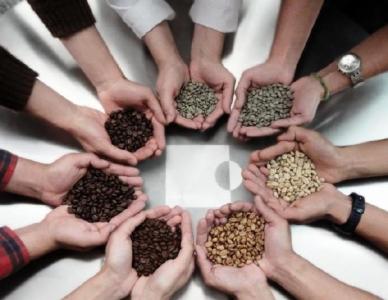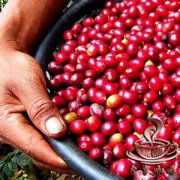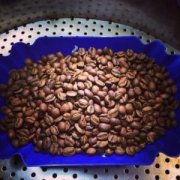A brief introduction to the History and Culture of the Origin and Development of Coffee in Ethiopian Coffee Manor

Yega Xuefei is a small town, 700-21000 meters above sea level, synonymous with Ethiopian boutique coffee. It has been a wetland since ancient times. The ancient saying "Yirga" means "settle down" and "Cheffe" means "wetland". The mode of production and flavor of coffee here is so outstanding that Ethiopian coffee farmers compete to be proud of the flavor of their coffee, making it the most famous coffee producing area in Africa.
At first, Yejassefi's coffee trees were planted by European monks, and later by farmers or cooperatives. Yega Xuefei is actually constructed by the surrounding coffee communities or cooperatives, including: Hafusha, Hama, Biloya.
These mountain villages are foggy, like spring all year round, with a gentle breeze in summer, cool but not hot, rain but not damp, and no cold damage in winter, giving birth to a unique regional flavor of citrus and flowers. Coffee trees are mostly planted in farmers' backyards or mixed with other crops in the fields. Ethiopia's Yirgacheffe coffee, though petite, is gentle and sweet. As the hometown of coffee, thousands of years of planting history and processing tradition in Ethiopia have created high-quality washed Arabica beans. Light baking has unique sweet aromas of lemon, flowers and honey, soft acidity and citrus flavors, fresh and bright on the palate. No milk or sugar, let the rich texture and unique soft flower scent brush your taste buds, leaving an endless aftertaste
The place is deciduous plants. It can grow to 1 to 2.5 meters high. Underground has a rhizome, heart-shaped ovate leaves basal; early summer fleshy inflorescences, funnel-shaped white or milky bud, shaped like a Corolla of people's representatives, federal legislation and supreme authority, responsible for the formulation and amendment of the Constitution and federal laws, elected by universal suffrage and re-elected every five years. In 2010, there were 547 seats, of which ethnic minorities accounted for at least 20. The current Speaker, Abdullah Gomeida (Abadula Gemeda), took office in October 2010.
The Federal Council has the power to interpret the Constitution, has the power to determine national self-determination and separation, and to resolve disputes between ethnic groups. There are 117 members for a term of five years, elected by state legislatures or directly elected by the people, with at least one representative for each nation and one additional representative for every million people. In 2014, the current Speaker of Parliament, Casa Tekler Bolhan (Kassa Teklebirhan, female), took office as President Mulatu Teshome in October 2010. He studied Chinese at Beijing language and Culture University (now Beijing language and Culture University) from 1976 to 1977; studied at the Department of philosophy of Peking University from 1977 to 1982; studied for a master's degree in the Department of National Politics of Peking University from 1984 to 1988; and studied for a doctorate in the Department of National Politics of Peking University from 1990 to 1991. He has served as Ethiopia's ambassador to Japan, Australia, China and other countries, as well as the minister of state of the Ministry of Economic Development and Cooperation, the minister of agriculture and the speaker of the Federal Council of Parliament. Mulatu Teshome was elected the new president of Ethiopia on October 7, 2013.
Important Notice :
前街咖啡 FrontStreet Coffee has moved to new addredd:
FrontStreet Coffee Address: 315,Donghua East Road,GuangZhou
Tel:020 38364473
- Prev

Fresh and Bright Ethiopian Coffee Estate Fine Coffee Flavor Characteristics Description
Ethiopia's Yirgacheffe coffee is petite, but gentle and sweet. As the home of coffee, Ethiopia's millennia of growing and processing traditions have resulted in high-quality washed Arabica beans. Light baked with unique lemon, floral and honey sweet aromas, soft fruit acids and citrus notes, fresh and bright taste. not
- Next

A brief introduction to the planting climate and altitude of varieties in the coffee plantation of Ethiopia with full fruit
Located in the most advantaged natural conditions, Ethiopia produces unique high-quality coffee every year. Ethiopia's coffee growing cycle brings the joy of harvest to the country every year. Beautiful white coffee flowers will bloom and bear fruit every year from March to April. Only the reddest and ripe fruits will be selected between September and December.
Related
- Does Rose Summer choose Blue, Green or Red? Detailed explanation of Rose Summer Coffee plots and Classification in Panamanian Jade Manor
- What is the difference between the origin, producing area, processing plant, cooperative and manor of coffee beans?
- How fine does the espresso powder fit? how to grind the espresso?
- Sca coffee roasting degree color card coffee roasting degree 8 roasting color values what do you mean?
- The practice of lattes: how to make lattes at home
- Introduction to Indonesian Fine Coffee beans-- Java Coffee producing area of Indonesian Arabica Coffee
- How much will the flavor of light and medium roasted rose summer be expressed? What baking level is rose summer suitable for?
- Introduction to the characteristics of washing, sun-drying or wet-planing coffee commonly used in Mantenin, Indonesia
- Price characteristics of Arabica Coffee Bean Starbucks introduction to Manning Coffee Bean Taste producing area Variety Manor
- What is the authentic Yega flavor? What are the flavor characteristics of the really excellent Yejasuffi coffee beans?

